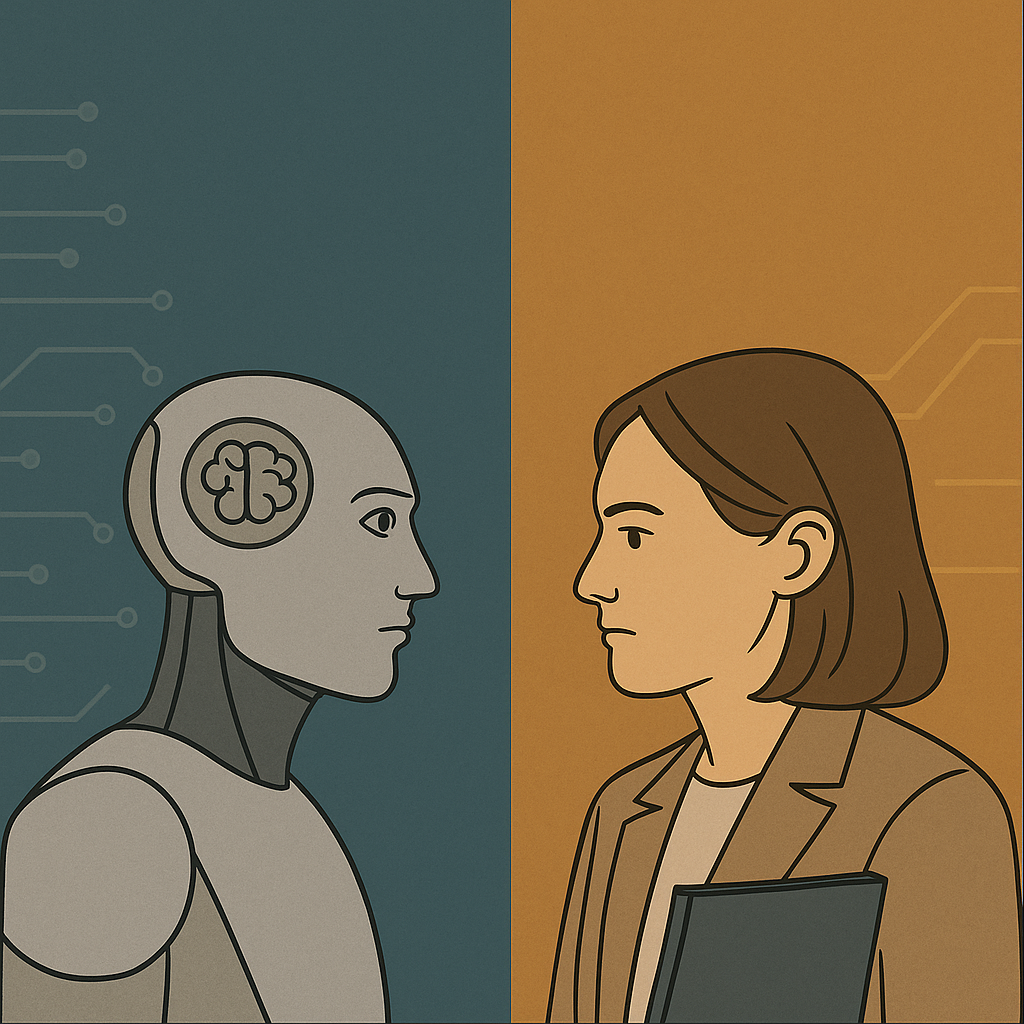Introduction
As Artificial Intelligence (AI) continues to reshape education, the role of educators is undergoing a fundamental transformation. AI tools promise personalization, automation, and deeper insights into learning—but they also introduce ethical, pedagogical, and professional challenges that must be addressed through robust teacher preparation. A new study from the University of the Aegean sheds light on an urgent issue: current Teacher Professional Development (TPD) programs are significantly biased toward technical skills, while largely overlooking the ethical and human-centered competencies outlined in UNESCO’s AI Competency Framework for Teachers (AI CFT).
The Study: Evaluating TPD Through the Lens of AI CFT
In a systematic review of 35 international TPD initiatives, researchers analyzed how well existing programs align with UNESCO’s comprehensive framework, which defines 15 AI-related competencies across five key areas: human-centered mindset, AI ethics, foundations and applications, pedagogy, and professional development. These are further divided into three progression levels—acquire, deepen, and create—to reflect the evolving needs of educators.
The findings are revealing. While technical competencies such as AI foundations and applications were well represented (with over 57% of studies addressing them), core ethical principles and competencies promoting a human-centered approach were largely neglected. For example, only 8.6% of studies engaged with the human-centered mindset, and none addressed the highest-level ethical competencies, such as co-creating AI rules in educational settings.
What’s Missing in Today’s TPD?
The study identified a systemic imbalance: current TPD efforts prioritize immediate classroom utility over deeper professional reflection and ethical awareness. While this reflects a practical urgency to upskill educators, it fails to prepare them for the broader responsibilities they hold in an AI-mediated learning ecosystem.
Barriers include the novelty and complexity of AI in education, limited institutional resources, and market-driven priorities that favor quick, technical solutions over long-term ethical readiness. Additionally, more advanced competencies like evaluating algorithmic bias or customizing AI tools for inclusion are rarely addressed.
Why Ethical Readiness Matters
With AI systems increasingly involved in student assessment, content creation, and decision-making, ethical literacy is non-negotiable. Teachers must be equipped to question algorithmic transparency, ensure data privacy, and uphold values of equity and inclusivity. Without these competencies, AI in education risks amplifying existing inequalities.
Toward Balanced TPD Programs
The authors argue that the AI CFT offers a roadmap for more balanced and responsible teacher training. Future TPD programs must go beyond basic digital skills and focus on cultivating critical understanding, ethical reflection, and the creative use of AI in diverse contexts. Structured initiatives should support teachers in not just acquiring tools, but understanding their societal implications and contributing to policy-making.
Recommendations
- Mandate AI Ethics: Embed ethical considerations into the core of TPD curricula.
- Diversify Competency Focus: Ensure all five areas of AI CFT are addressed, not just technical and pedagogical ones.
- Promote Progression: Support teachers in advancing from basic understanding to critical innovation (Acquire → Deepen → Create).
- Invest in Infrastructure: Provide the technological and institutional support necessary for deep integration.
- Support Multistakeholder Collaboration: Involve educators, policymakers, researchers, and developers in co-designing training content.
Conclusion
The future of education is being written in algorithms—but it must be guided by educators who understand, shape, and question the technologies they use. Teacher professional development is the cornerstone of this vision. Aligning TPD with frameworks like UNESCO’s AI CFT ensures that educators are not only tech-savvy, but ethically grounded and professionally empowered. The time to rebalance is now.
Further Reading: UNESCO AI Competency Framework for Teachers: https://www.unesco.org/en/articles/ai-competency-framework-teachers
Source:
Tsioukas, K., Kostas, A., & Tzortzoglou, F. (2025). From Technical Proficiency to Ethical Readiness: Mapping Teacher Professional Development Programs with UNESCO’s AI Competency Framework for Teachers. Education Sciences. (Forthcoming).

